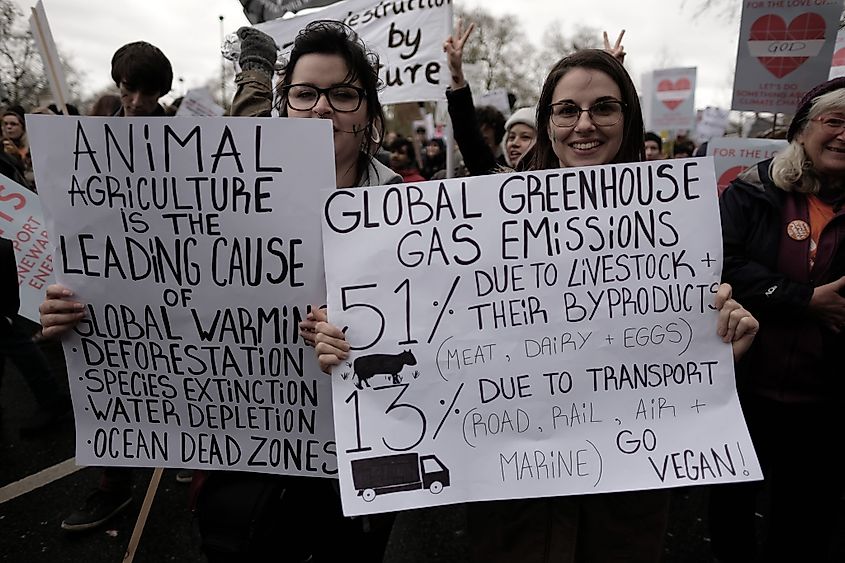What Percentage Of Canadians Are Vegetarians?

- 7.1% of the Canadian population is Vegetarian.
- Vegetarians can be at a high risk for low iron, zinc, and B12.
- Vegetarians may have lower blood pressure, lower cholesterol, less heart disease, and a lower cancer risk.
Vegetarians do not eat meat including red meat, poultry, seafood, and the flesh of any other animal. Some vegetarians do not even eat by-products of animal slaughter. Foods with animal by-products may include processed foods such as, cakes, cookies, candy, chocolate, marshmallows, cheese, and yogurt. Some vegetarians do not have a problem with consuming animal by-products.
Vegetarians choose their lifestyle for a variety of reasons. Some choose the lifestyle for religious, ethical, the rising cost the meat, environmental concerns or health reasons.
Vegetarians And The Environment

Vegetarianism and the environment are closely related. The farming industry uses a massive amount energy, which is usually coal and oil. The industry also can destroy forests and pollute the seas, rivers, land, and air. Farming uses a huge amount of natural resources as well. In fact, one farm can create as much waste as a city. Additionally, animals carry many diseases that can transferred to humans. Vegetarians make less of a negative impact on the environment by not consuming animal products.l
Vegetarians In Canada

Currently, vegetarians make up 7.1% of Canada’s population. Dalhousie University reports that there are 2.3 million vegetarians in Canada, which is an increase from 900,000 15 years ago. Researcher, Sylvian Charlebois, discovered that people under the age of 35 were three times more likely to call themselves vegetarian or vegan then people age 49 or older. Charlebois based her findings survey responses from 1,049 Canadians.
Since the Canadian vegetarian population is so young, it is probable that many of them will have children and raise their children with the same beliefs. It is likely that the number of vegetarians in Canada will increase.
Charlebois found that British Columbia leads Canada with the most vegetarians. 8.5% of British Columbia survey respondents reported that they follow a plant-based diet. British Columbians were three times more likely to have a plant-based diet then Canadians that live in the Prairies or Atlantic region. Ontario had the second largest number of vegetarians.
The survey also found that women were 1.6% more likely than men to not eat animal-based products. Canadians who earned over $150,000 where are twice as likely to be vegetarians then those who earned under $80,000 a year. University graduates where three times more likely to be vegetarian or vegan then those with only a high school diploma. Those who live in cities were also three times more likely to adopt a vegetarian lifestyle than those who live in small towns.
The rise of vegetarianism has prompted some Canadian restaurants to include vegetarian burgers and fast food options. A&W and Burger King added a meatless burger to their menus.
Health Risks
There are some dietary concerns vegetarians need it to be aware of. Depending on their diets, vegetarians may be at risk for low iron, zinc, and B12. They may have an increased risk of osteoporosis, and it may become difficult to find omega 3 fatty acids in their diets. However vegetarians have the health benefits of reducing heart disease risks, lowering cancer risks, having lower cholesterol and blood pressure, controlling diabetes, and possibly having a lower body weight.











